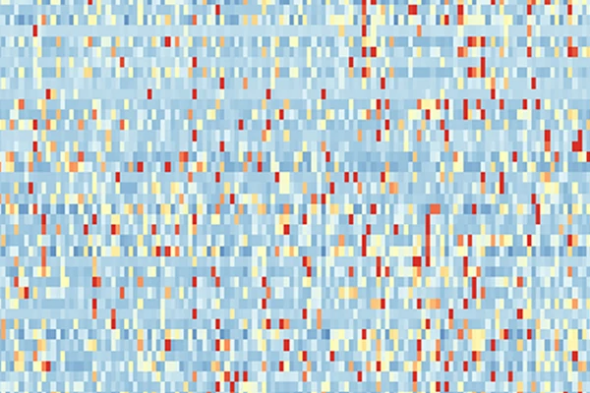Clinical clue leads to design of promising new solution for chemo-resistant leukemia
Acute myeloid leukemia is a disease with a grim prognosis – only a quarter of patients over the age of 20 survive to five years after diagnosis. But people with a particular genetic mutation respond to treatment much better than others, dramatically improving their clinical outcome.
A team led by Andrei Gartel, associate professor of molecular genetics at the University of Illinois Chicago, used that genetic clue to identify a novel compound that could help others with acute myeloid leukemia, or AML, enjoy the same therapeutic advantages.
The research, published in Blood Cancer Journal, examined the links between a mutation in the NPM1 gene and its regulation of FOXM1, a transcription factor implicated in many different cancers.
Transcription factors work in the nucleus to switch genes on and off, controlling how much protein they produce. In previous work, Gartel’s group determined that the mutant NPM1 produced a protein that binds to FOXM1 and pulls it out of the nucleus to the cytoplasm, interrupting its function.
In the new paper, researchers looked at FOXM1-related gene transcription in patients with and without the NPM1 mutation. When FOXM1 activity was high, the patient’s survival rate declined. But in patients with the mutant NPM1 gene, FOXM1 activity was lower and clinical outcomes were better, suggesting that blocking FOXM1 could make cancer cells more vulnerable to chemotherapy.
That inspired Gartel’s group to test a new small molecule inhibitor of FOXM1 — developed by collaborators Carlos Camacho and Alexander Dömling — that recreates the mechanism of the mutant NPM1. In cancer cells derived from acute myeloid leukemia, the compound was successful in reducing FOXM1 activity and made cells more sensitive to treatment with standard chemotherapy drugs.
The next steps, Gartel said, will be to work with medicinal chemists to further refine that inhibitor, then test it in preclinical and clinical trials. He’s also interested in seeing whether interrupting FOXM1 in this way can help with other cancers where the transcription factor is active.
In addition to Gartel, a member of the University of Illinois Cancer Center, UIC co-authors include Irum Khan and Xu Zhang. The study also included collaborators from Oregon Health & Science University, Centro Nacional de Investigaciones Oncológicas in Madrid, Spain, The Czech Advanced Technology and Research Institute of Palacký University, and the University of Pittsburgh. The research was funded by grants from the National Institutes of Health and the American Cancer Society.

